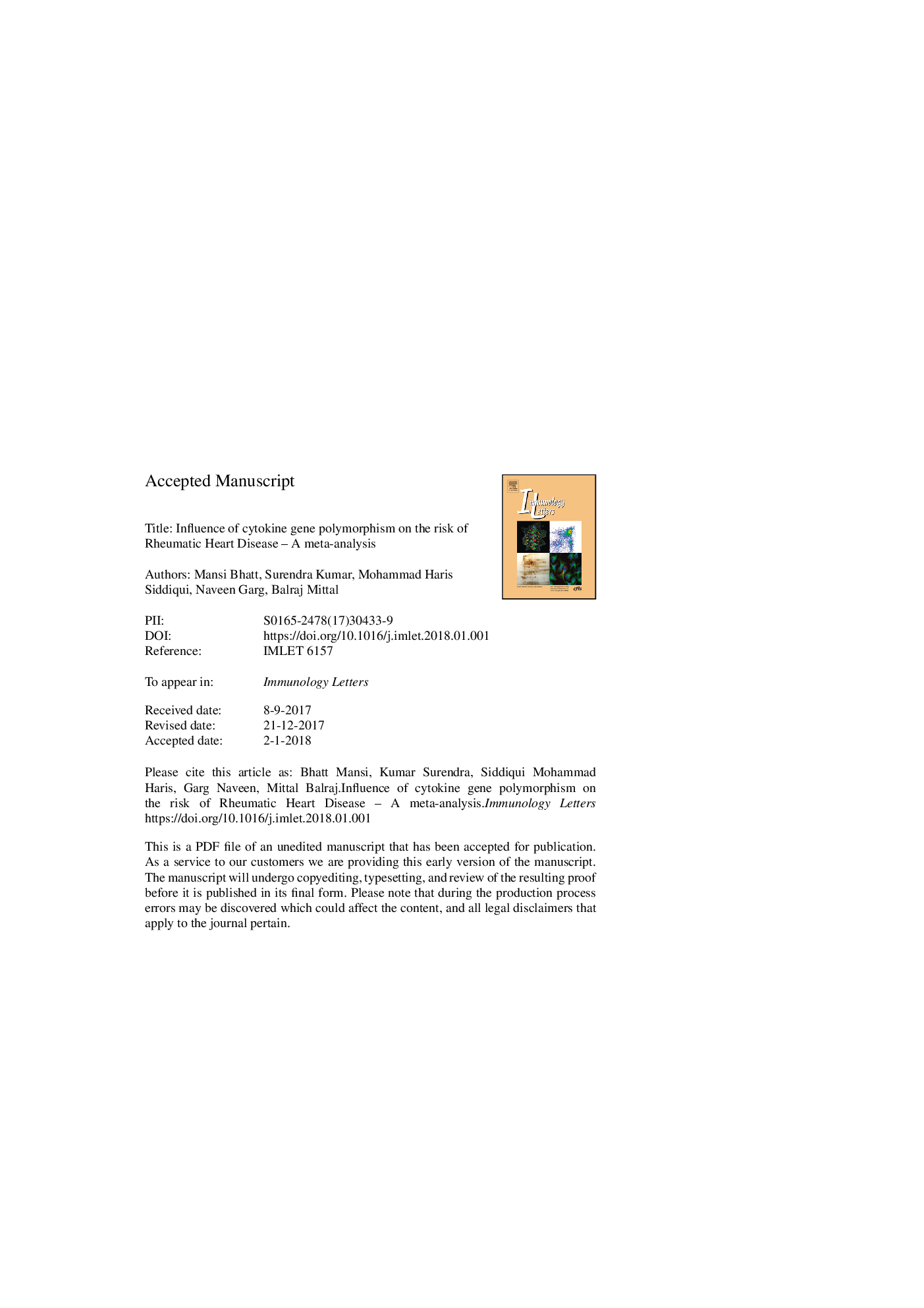| Article ID | Journal | Published Year | Pages | File Type |
|---|---|---|---|---|
| 8738379 | Immunology Letters | 2018 | 50 Pages |
Abstract
RHD is an inflammatory disease resulting from interactive immune, genetic, and environmental factors. Various, epidemiological studies have shown the association of genetic variants of cytokine genes with a predisposition to RHD. However, the results from different populations are inconsistent. Therefore, we carried out a meta- analysis of twenty-three published case-control studies and the results indicated that TGF-β1 +869âT/C (T vs. C: ORâ¯=â¯7.68, 95% CIâ¯=â¯1.62-36.50; TTâ¯+â¯CT vs. CC ORâ¯=â¯1.83, 95%CIâ¯=â¯1.39-2.41), TGF-β1-509 (T vs. C: ORâ¯=â¯2.76, 95% CIâ¯=â¯1.33-5.75), TNF-α(AA vs. GG: ORâ¯=â¯4.93,95% CIâ¯=â¯2.83-8.58; A vs. G: ORâ¯=â¯2.15, 95% CIâ¯=â¯1.13-4.12) and IL-1β â511C/T (CCâ¯+â¯CT vs. TT: ORâ¯=â¯1.35, 95%CIâ¯=â¯1.02-1.78;âC vs. T: ORâ¯=â¯2.36, 95% CIâ¯=â¯1.66-3.37) were significantly associated with increased risk of RHD. On the other hand, IL-10(â1082)G/A polymorphism (GA vs. AA: ORâ¯=â¯0.91, 95% CIâ¯=â¯0.36-2.33; G vs. A: ORâ¯=â¯1.90, 95% CIâ¯=â¯0.58-6.22) and IL-6-174â¯G/C (CCâ¯+â¯GC vs. GG: ORâ¯=â¯0.68, 95%CIâ¯=â¯0.32-1, C vs. G: ORâ¯=â¯1.14, 95% CIâ¯=â¯0.82-1.60) were not associated with modified RHD risk. The meta-analysis results were similar in Asians and non-Asians. Therefore, cytokine gene polymorphisms play important role in the genetic susceptibility of RHD in rheumatic fever patients.
Related Topics
Life Sciences
Immunology and Microbiology
Immunology
Authors
Mansi Bhatt, Surendra Kumar, Mohammad Haris Siddiqui, Naveen Garg, Balraj Mittal,
